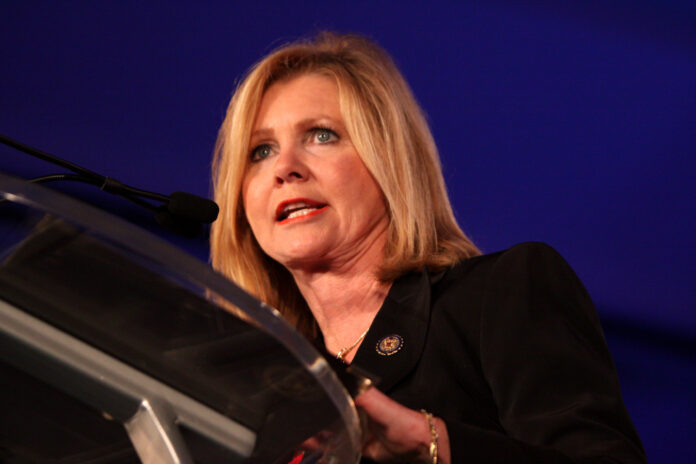US senators have agreed to try to amend a bill that would bar states from regulating artificial intelligence, proposing to shorten the moratorium from 10 years to five.
Tennessee Senator Marsha Blackburn announced on Sunday that she had reached an agreement on the proposed amendment to President Donald Trump’s “Big, Beautiful” Bill with Texas Senator Ted Cruz. States that do not comply with the five-year moratorium still risk losing access to a $500 million federal funding pool designated for AI infrastructure development.
“To ensure we do not decimate the progress states like Tennessee have made to stand in the gap, I am pleased Chairman Cruz has agreed to update the AI provision to exempt state laws that protect kids, creators, and other vulnerable individuals from the unintended consequences of AI,” Blackburn, who is on the Commerce Committee, said in a statement to Axios.
Differing views about the moratorium
This is notable as Sen. Blackburn strongly opposed the moratorium, believing it would negate efforts towards important state-level legislation, such as Tennessee’s ELVIS Act, which protects musicians from unauthorised audio deepfakes using their voice.
“We are working to move forward with legislation at the federal level, but we do not need a moratorium that would prohibit our states from stepping up and protecting citizens in their state,” she said in a statement earlier this month.
Cruz, the chair of the Senate Commerce, Finance and Transportation Committee, has maintained that the moratorium was necessary to prevent a fragmented patchwork of state laws that could hinder innovation and let China overtake the US in the AI race.
“Any Republican who votes to strip this moratorium out of the bill is voting, number one, to give a massive gift to communist China,” he told Daily Caller yesterday.
Backlash about the bill
The original bill received huge backlash, with state senators, attorneys general, and other organisations writing open letters explaining how such a broad moratorium would remove state rights to regulate and leave tech giants unaccountable to lawmakers and the public. It is unclear whether shortening its length would appease their concerns.
On the other hand, the Trump Administration holds the view that over-regulation will stifle innovation from American startups and discourage lucrative tech firms from expanding in the US. In a February speech, US Vice President JD Vance disparaged Europe’s use of “excessive regulation”. He said that the international approach should “foster the creation of AI technology rather than strangle it.”
Indeed, maintaining federal control over AI policy will enable Trump to block regulations he views as harmful, even if it means overriding opposition from individual states.
Amendment allows states to create AI laws that address child safety
The original and amended moratorium both apply to “artificial intelligence models, artificial intelligence systems, or automated decision systems,” covering a broad range of technologies from general-purpose chatbots to specialised industry tools.
However, the amendment would allow states to make their own laws if it is generally applicable and not specifically targeted at AI, such as those addressing child online safety, preventing child sexual abuse material, preventing unfair or deceptive business practices, or protecting individuals’ names, images, and likenesses.
Others will be allowed if they facilitate AI deployment, such as by removing legal barriers or simplifying licensing. Nevertheless, they must not place an “undue or disproportionate burden” on AI systems.
States will be subject to the five-year moratorium if they choose to claim any portion of the new $500 million fund for AI infrastructure created under the Broadband Equity, Access, and Deployment Program.
What happens next?
Last week, the Senate Parliamentarian ruled that the AI regulation moratorium provision complies with the Byrd Rule. This means it is a budgetary item rather than a policy matter, so it can remain in the budget bill.
The Senate is expected to conduct several amendment votes today so that the bill can be returned to the House of Representatives and enacted before the July 4 deadline.
Regardless of what happens in Washington, California has its own plans to regulate AI.
